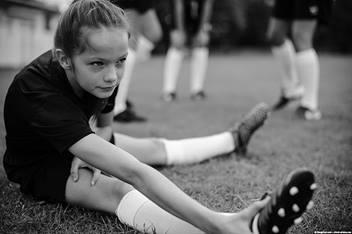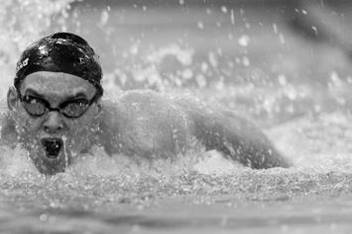Sports Medicine: Iliac Apophysitis
Iliac apophysitis (uh-paa-fuh-sai-tuhs) is pain and swelling (inflammation) of the growth plate along the side of the hip (iliac crest). The growth plate is an area of weakness, and injury to it occurs because of repeated stress or forceful exercise. Because the iliac crest growth plate typically closes in the mid to late teens, this problem is uncommon after
these ages.
Signs and Symptoms
- A tender, and sometimes swollen area along the iliac crest (bony bump on the side of the hip)
- Usually starts slowly and gets worse
- Pain with activity, especially running, jumping, kicking, and twisting
Increased Risk
- Repetitive activity, such as running or jumping
- Sports that require body twisting (golf, batting, pitching)
- Sports that require sprinting and kicking (soccer, football)
- Growth spurts
- Tight and weak hip muscles
Treatment
- Medicine
- Anti-inflammatory medicines, such as ibuprofen (Motrin® or Advil®) or naproxen (Aleve®) may be recommended. Take these as directed by your health care provider.
- Other minor pain relievers like acetaminophen (Tylenol®) may be taken.
- Use of cold and heat
- Cold should be applied for 10 to 15 minutes every 2 to 3 hours and after any activity that makes symptoms worse. Use ice packs or an ice massage and raise the foot and ankle at or above heart level to reduce swelling.
- Heat may be used before doing stretching and strengthening activities prescribed by your health care provider or athletic trainer. Use a heat pack or a warm soak. Apply for 10 to 15 minutes.
- Rest
- Decreasing or stopping painful activity may be necessary to allow the injury to heal.
- Exercises
- Exercises to improve strength, flexibility, and proper body mechanics are important. These can be done at home, but often a referral to a physical therapist or athletic trainer may be advised by your health care provider.
How to Prevent
- Do correct warm-up and cool down before and after practice or competition.
- Use shoe inserts for leg-length differences.
- Avoid rapid or extreme changes in training or activity.
- Maintain proper conditioning, strength, flexibility, endurance, and cardiovascular fitness.
- Maintain proper body weight.
- Use proper technique and avoid cross-body arm motion with running.
When to Call the Doctor
Call your doctor, health care provider, or the Sports Medicine team at (614) 355-6000 if:
- Symptoms get worse or do not improve in 4 weeks, even with treatment.
- Signs of infection develop like fever of 100.4° Fahrenheit (F) or 38° Celsius (C) or higher.
- New, unexplained symptoms develop.
HH-I-580 ©2022, Nationwide Children’s Hospital


